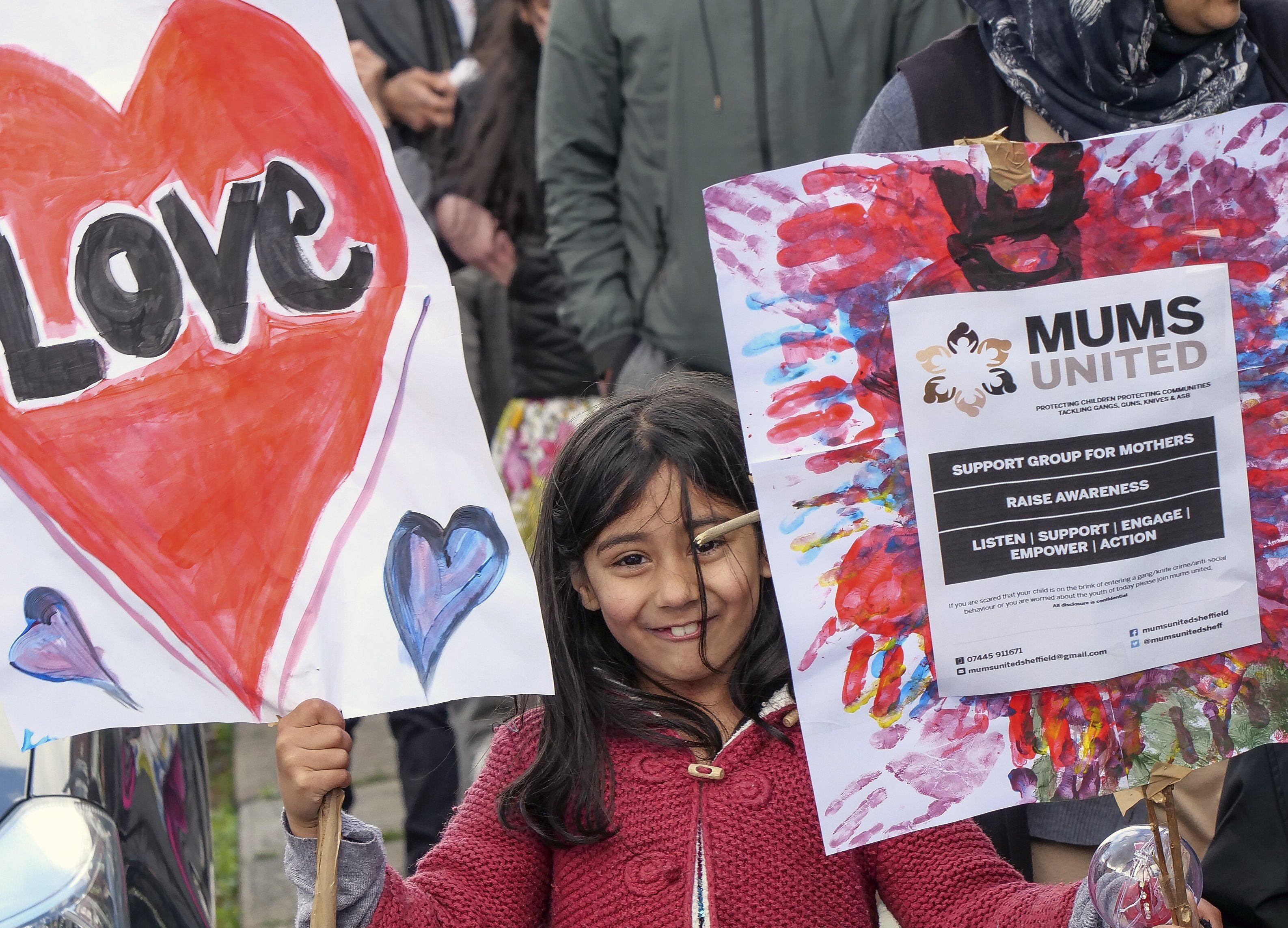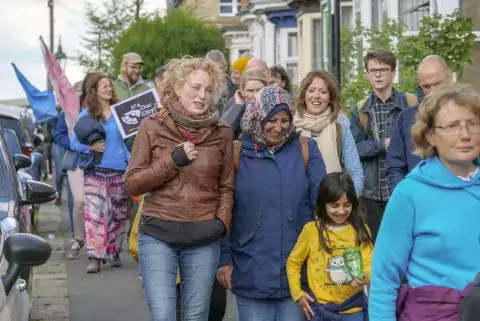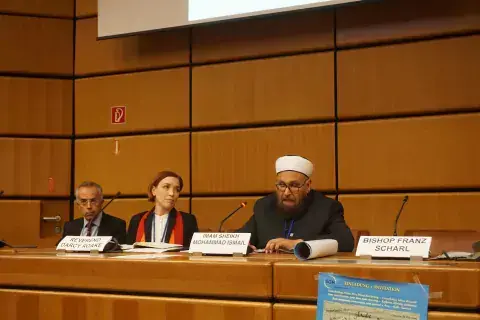
Churches, mosques and community centres have all become essential spaces where interreligious organizations across the UK can counter the devastating effects of knife crime.
In the last nine years, knife crime in England and Wales has reached record levels. Offences rose by seven percent in the year ending June 2019, according to figures from the Office for National Statistics (ONS). While the picture is mixed – with a fall in the number of homicides linked to knife crime – the number of offences involving a knife or another sharp object increased from 41,000 to over 44,000.
“The impact of knife crime is devastating, we have young people die and young people injured,” says Imam Sheikh Mohammad Ismail, the Muslim chaplain of the University of Sheffield UK and advisor on community safeguarding, as well as a member of the KAICIID-supported Muslim Jewish Leadership Council. “It is very sad to see teenagers (involved) and devastating for the families. It brings terrible kinds of impact on the community.”
In Imam Ismail’s local community of Sheffield, South Yorkshire, knife crime has almost doubled in the last nine years. In 2018, the scale of violent crime rose faster in the Sheffield region than anywhere else, up 57 percent in 2016 and three times the national average. The trauma associated with knife attacks scars communities of all economic and religious backgrounds across the UK.
Imam Ismail says this has laid the groundwork for interreligious response, such as a group of Sheffield mothers from different religious groups who have come together in a bid to tackle the root causes of knife crime. The group, Mums United, aims to prevent young and at-risk youth getting involved in gang-related violence and anti-social behaviour.

The mothers meet regularly at Sheffield’s Makki Mosque to hold education seminars and other activities looking at gang culture and the consequences of gang membership. They also organize talks, peace marches and sports events to engage with parents and children affected by knife crime.
“Knife crime is here with us,” says Imam Ismail. “Sometimes it involves gangs, sometimes it involves drug pushers and criminal gangs. What we have done is to raise awareness through mosques and churches by asking the imams and priests to raise the issue.”
For Imam Ismail, the Mums United project speaks to how faith groups can work closely together to address some of the most devastating social problems. Their collaboration with Makki Mosque is also thought to be the first time a Muslim prayer organization in Yorkshire has joined a campaign to tackle knife crime – a partnership which Imam Ismail says is deeply important in raising community awareness.
“These crimes have an ethical and moral issue as well,” he says. “Faith can play a very important role in this by reminding people of their ethical responsibility and reminding them it is immoral to sell them drugs and unlawful. I think that message is going through into the community…The violence associated with knife crime reflects on their social behaviour.”

The issue of knife crime is also quite urgent in London. Earlier this year, the ONS said that 15,080 knife offences were recorded during the 12 months to the end of last September. The Mayor of London Sadiq Khan has highlighted the link between poverty in the capital and the rise in serious youth violence.
As part of their one-year training through the KAICIID International Fellows Programme, Waheedullah Massoud and Johnson Amamnsunu launched an initiative which targets knife crime prevention in London.
“When I got involved with KAICIID I realised that we can help in our communities with whatever issue is more prevalent. In London, we decided that knife crime is something that we can focus on,” Massoud said.
The pair organized a half-day event in Surrey last summer which focused on the role of religious groups in addressing issues of knife crime and youth violence in London.
Funded through a KAIICID microgrant, the workshop was attended by academics and leaders of religious groups, as well as youth victims and perpetrators of knife crime and violence. Guests in attendance included Reverend Nims Obunge, Senior Pastor of Freedom’s Ark Church and the founder and CEO of The Peace Alliance, and Professor Saleem Asghar Kidwai, Secretary-General of the Muslim Council of Wales.
“We had parents of knife crime victims, we had parents of knife crime perpetrators. There was a lot of regret, there was a lot of acceptance, there were tears,” Massoud said.
Amamnsunu said the workshop was an important first step towards interreligious engagement and that several religious leaders had told him they planned to raise awareness of the issue during their regular worship services, particularly since knife attacks and the violence linked to them can impact citizens of all backgrounds.
“The sad thing about victimisation is that it doesn’t know faith or background,” says Amamnsunu. “In all the victims I spoke with, there are racial aspects to stabbings. I spoke with the mother of one victim who was stabbed to death. She evoked her religion when she said she was able to forgive and forget because of her Christian beliefs.”
Amamnsunu’s work on knife crime prevention also sees him engage with Christian and Muslim communities from Africa who are living in London. He says the training he received during his KAICIID Fellowship has given him some valuable tools which help him reach out to those people worse affected.
“The main focus of the fellowship is to train in dialogue," he says. "We get opportunities to learn about dialogue in theory and in practice. Those skills were very practical things we learned in the KAICIID Fellows programme. In my work, you need to be able to create that safe space to be able to operate.”